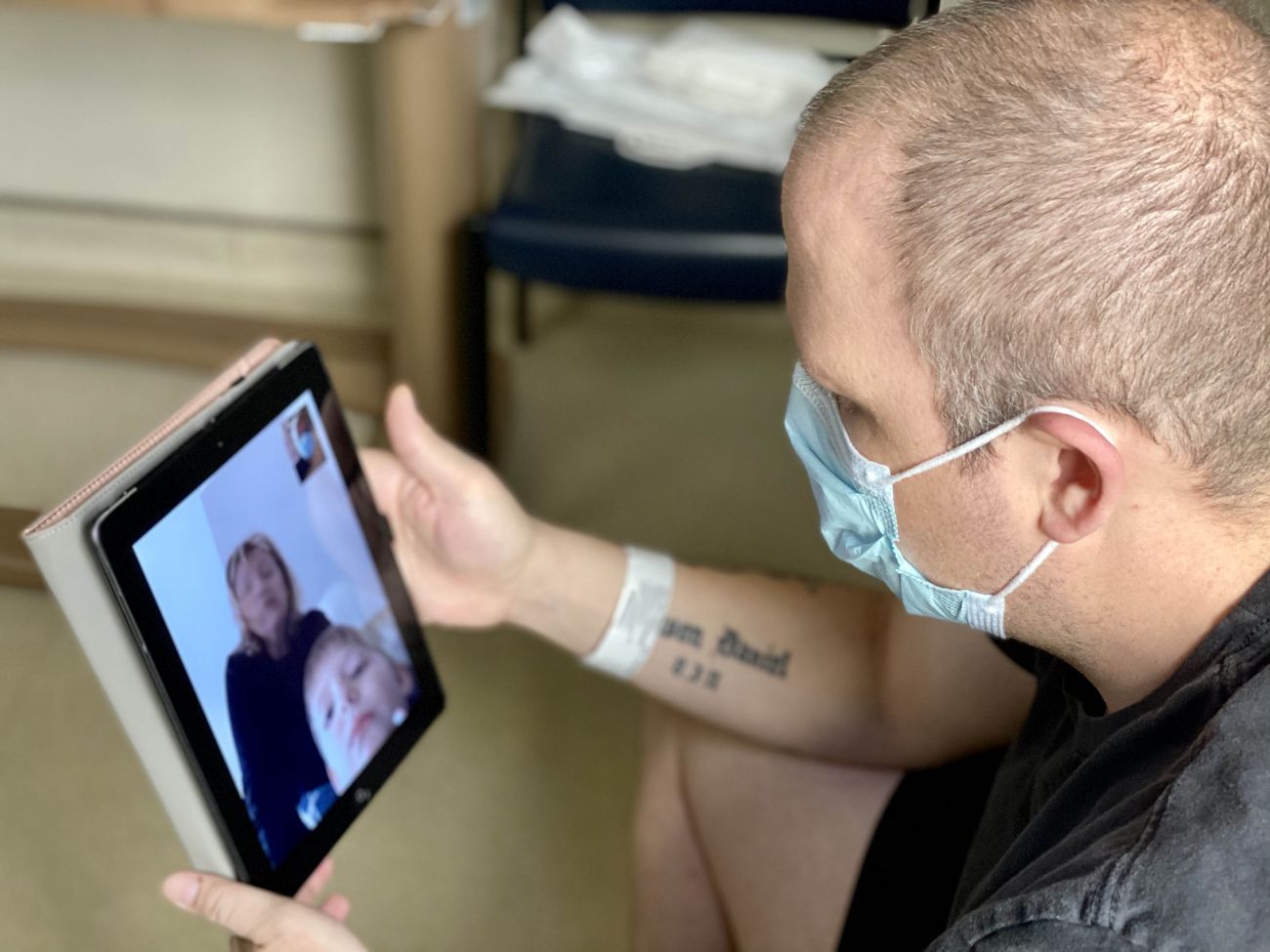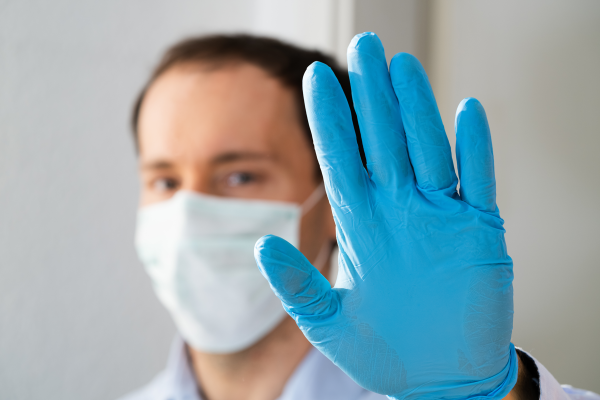Single dad Chris Bosley is currently in his second monthlong stay at Roswell Park for treatment for acute myeloid leukemia (AML). During his first hospitalization, back in December, he saw his parents every day and, best of all, his son three times a week. But this time, no loved ones are allowed to visit. At all.
The 38-year-old is also a paramedic and a doctoral student at the University at Buffalo. So finding out last year that his sudden back pain was actually cancer was a hard hit, and a scary thing to hear as a young father. But his chemo treatments have been successful, and in early April, he had a bone marrow transplant (BMT) to strengthen the chances that the cancer will stay away.
Now he’ll be in Roswell Park for at least a month while doctors monitor him to make sure his body is healing properly — standard protocol for BMT patients. Not being able to see his parents or especially Mason, his 8-year-old son, under the new rules is a difficult change, to say the least. The boy is his everything.
In March, Roswell Park’s visitation rules changed because of the risks of the growing coronavirus pandemic. For their own critical protection, those who are admitted to the cancer center can have no visitors during their stay.
“Having a cancer diagnosis is extremely difficult in a normal situation,” says Renee De Wald, RN, MSN, CMSRN, Clinical Nurse Manager for the floor Chris is on. “A visit from a loved one provides a sense of security and an element of home in an unfamiliar environment. Without this, there is a risk for depression and increased levels of stress and anxiety, which can lead to lack of motivation, a decreased appetite and insomnia. All elements that are fundamental to a patient’s recovery.”
Now, thanks to donations to the Roswell Park Alliance Foundation — which include support from Pegula Sports & Entertainment, KeyBank and M&T Bank — 151 iPads have been provided for inpatients to use for the duration of their stay to help them connect daily with loved ones, alleviating the loneliness and anxiety they often feel.
With the iPads, inpatients can have face-to-face video calls with their family and friends. The devices will also give doctors an easy way to update loved ones on their status during rounds.
In December, when he heard “cancer” and “Dad in the hospital,” Mason thought his father was going to die. Chris says he prepared his son well for this second visit, and he’s handling it better. But other children will take it harder. Being able to see their parents will have a tremendous impact on all of them.
“Not being able to see my son now is extra difficult,” Chris says. “It’s good to be able to see him on video — even if he does get bored and wander off frame pretty fast.”
More Information
The COVID-19 situation is evolving rapidly. To read the latest information on Roswell Park’s response and find additional resources, visit our Coronavirus (COVID-19) web page.
Learn More“Face to face on the iPad is nice. My family has Apple devices, so that makes it quite easy to get hold of them. Mason been pretty good with it. He’ll tell me some stuff, some what-happened-today stories. The ones that get the biggest uses are my mother and my father, who will be my caretakers when I get out of here.”
What does he think about the fact that the iPads are the result of donations? “I think it’s great. Given that people are here for longer and without the possibility of having visitors, it helps maintain those social bonds with people in our networks, which is not only helpful but necessary.”
Renee agrees. “Having people willing to donate in such a capacity is beyond helpful. It helps keep patients connected with family as physically as they can be. Being able to visualize someone is much more comforting than just hearing someone’s voice over the phone.” She says it also helps you know whether the patient means it when they say “I’m fine” or if maybe they just don’t want to worry you — you can see all the nonverbal language telling the real story.
“Patients are in a foreign environment with a very serious diagnosis and don’t know if they’re going to be OK,” she adds. “They no longer have the sense of security that visits provide. Our nurses do an amazing job, but they aren’t family members and certainly cannot take their place. The ability to video chat with a loved one not only enables that person to truly see how the patient is doing, but also allows the patient to see that their family is OK, too! Both of which can motivate the patient to continue their fight. It’s just a wonderful idea.”
iPad Instructions
If you are unfamiliar with Skype, we will walk you through how to get started.
Learn MoreEditor’s Note: Cancer patient outcomes and experiences may vary, even for those with the same type of cancer. An individual patient’s story should not be used as a prediction of how another patient will respond to treatment. Roswell Park is transparent about the survival rates of our patients as compared to national standards, and provides this information, when available, within the cancer type sections of this website.

